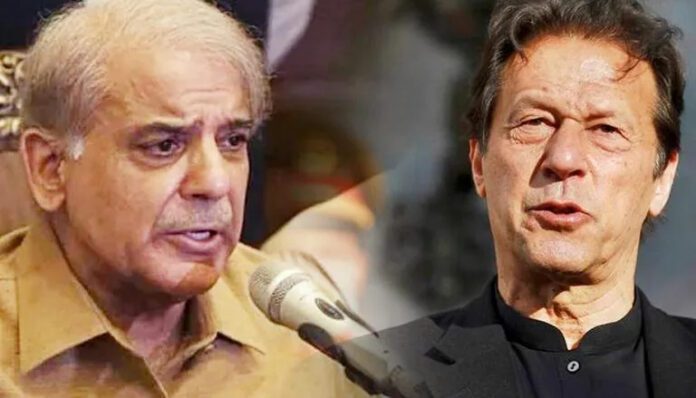The sniper attack on Imran Khan and his associates (November 3 at Wazirabad) is likely to aggravate Pakistan’s political crisis and sharpen socio-political divisions. Any dramatic intervention may slow down the cycle of instability born out of the no-confidence motion against Khan in April, yet the downhill journey will be very difficult to contain in the absence of popularly mandated government. Why?
Because the war between two conflicting political thoughts has never been more pronounced. Miftah Ismail, former finance minister, articulated one thought after relinquishing charge of the ministry of finance in favour of Ishaq Dar.
“The 1pc elite controls this country…..almost all rich Pakistanis are beneficiaries of generational wealth,” Ismail had told an awards’ ceremony in Karachi on October 4.
Miftah Ismail – himself a big industrialist and businessman – offered similar ideas in a ted talk back in May this year.
Because in Pakistan, we only provide opportunities to the top one percent, not to the rest of the population. So, if you belong to the privileged one percent then you will have a lot of opportunities. But if you don’t belong to that privileged one percent then sorry… opportunities are not for you. The appropriate name for Pakistan really should not be the Islamic Republic of Pakistan, but it should be called the ‘One Percent Republic of Pakistan.’ (https://narratives.com.pk/guest-column/the-one-percent-pakistan/)
Isn’t it a political apartheid that only a handful of these rich – who represent the political, aristocratic, civil-military bureaucracy elites – control national wealth and authority to the disadvantage of the 99 percent of Pakistanis?
What was Apartheid in South Africa about? Apartheid is an Afrikaans word for ‘separation’ – literally, ‘separateness’ – and was used to describe the discriminatory political and economic system of racial segregation which the white minority imposed on the majority non-whites. It was implemented by the ruling the National Party of South Africa, from 1948 until 1994. Black men and women were forced to live in ten so-called ‘black homelands’, where they were permitted to run businesses. To live and work in designated ‘white areas’, they required permits. Hospitals, ambulances, buses and public facilities were all segregated, and non-white participation in government was denied.
A minority of less than 10 percent whites was essentially ruling the rest until Nelson Mandela walked out of his three-decade long detention and scrapped the inhuman apartheid altogether legally.
The elite-capture i.e. control of national resources and authority by the civil-military bureaucracy and their aligned business/industrial houses is no different from the abhorrible south African apartheid. Socio-economic exclusion of the dominant majority and a criminal justice system tailored to suit the mighty ones only.
Given the current explosive situation, the status quo ruling Pakistan is not tenable any more. All well-meaning Pakistanis shall have to close ranks and stand up to the legacy of the British colonial rule to create conditions which benefit the large majority of the country and just a few.




